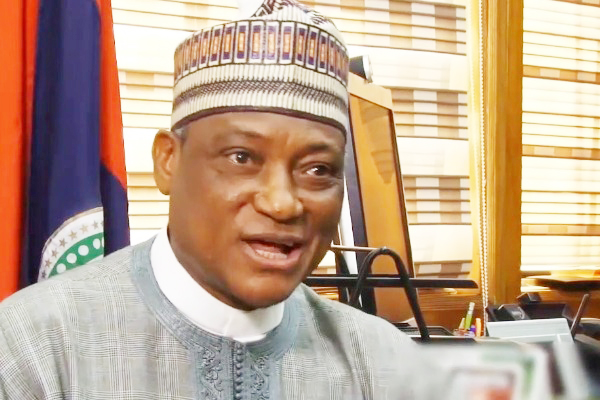News
Minister wants capacity-monitoring unit for armed forces

The Minister of Defence, Mansur Dan-Ali, has advocated the establishment of armed forces capacity monitoring and evaluation unit for enhancement of military performance.
Dan-Ali made the call on Monday while delivering a lecture to participants of National Defence College (NDC) Course 27, in Abuja.
The Theme of the Lecture is “Defence Management in Nigeria: Ministry of Defence in Perspective’’.
The minister said that the role of Federal Government in the efficient management of defence was paramount and could be achieved through commitment to formulating and implementing comprehensive defence sector reform.
He said that the strategies for attaining defence reform included initiating public and expert dialogues to analyse and agree on the security and defence challenges.
According to him, this will lead to initiation of a comprehensive defence sector reform programme that clearly identifies those challenges.
Dan-Ali said it was necessary to improve transparent leadership, oversight, administration and accountability across the defence sector.
He also called for improvement in the funding of the military by ensuring that at least 80 per cent of all money from participation in peace-keeping operations was invested in the armed forces.
He said that this would be in addition to channelling to defence budget, all funds previously paid to former Niger Delta contractors “for so-called pipeline security arrangements’’.
The minister said that improved local production of basic military items, particularly by creating an investor-friendly environment and encouraging private sector investment in defence-related industries was imperative.
He urged participants to critically look at the current Defence Headquarters’ structure, including the responsibilities of Chief of Defence Staff, and come up with options for strengthening it for more efficient management of defence for Nigeria.
On the challenges of the defence management in Nigeria, he said that poor involvement of the civil society in the defence sector was one of the challenges in defence management.
‘’The civil society, acting as a voluntary group, plays an important informal role in national security decision-making processes and behaviour.’’
Dan-Ali noted that in Nigeria there was little involvement of the civil society in defence policy processes, adding that it was not good for efficient, transparent and accountable utilisation of national defence budgets.
He disclosed that the armed forces have developed and instituted strategy to combat terrorism, saying “let me at this point commend our armed forces for achieving giant strides in the support of the offensive operation in the North-East.
‘’Also, our armed forces are doing a lot to ensure that our national resources in the Niger Delta are not stolen to the detriment of our economy.
‘’Let me also recognise the additional support provided by other security agencies in the ongoing counter-insurgency and anti-banditry/kidnapping operations in the country.’’
The minister said that the military action against the terrorists had seriously degraded the insurgent’s ability and capacity.
‘’As a result of this, several displaced people and those that were held captives have been rescued while large number of Internally Displaced Persons (IDPs) have been able to return to their villages,’’ he said.
According to him, currently, over 200,000 internally displaced persons have been rescued and rehabilitated.
In his remarks, the Commandant of NDC, Rear Admiral Makanju Kadiri, said that defence management was a deep and complex subject, explaining that the “more you get involved, the more you understand the complexities’’.




 Davido's Net Worth & Lifestyle
Davido's Net Worth & Lifestyle 
